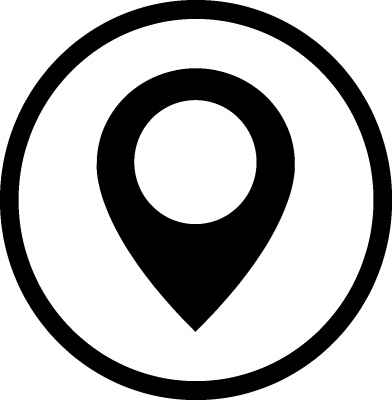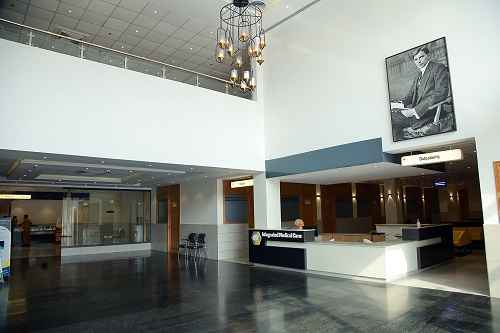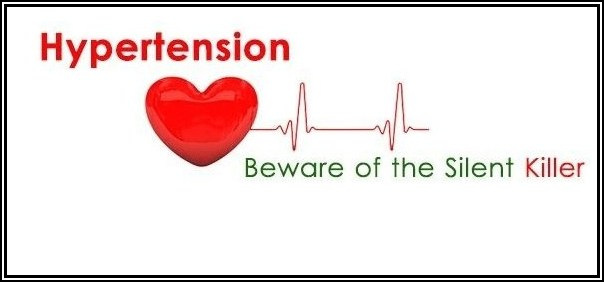- 15-May-23
What is Hypertension?
Hypertension which is commonly referred to as high blood pressure is a frequent medical disorder where the blood's constant pressure against the artery walls is increased. The systolic pressure which is the higher number and the diastolic pressure which is the lower number are used to indicate blood pressure in millimeters of mercury (mmHg). Less than 120/80 mmHg is regarded to be the normal blood pressure range. Hypertension on the other hand is defined as a blood pressure reading that is continuously at or higher than 130/80 mmHg.
Since hypertension frequently causes no symptoms, it is frequently referred to as the "silent killer" because many sufferers are unaware of their condition until other health issues or until a routine checkup reveals it.
Hypertension Meaning in Urdu:
ہائی بلڈ پریش : جسے عام زبان میں بلڈ پریشر کی بیماری بھی کہتے ہیں، ایک عام طبی مسئلہ ہے جس میں شخص کے خون کا دباؤ نظر انداز نہیں کیا جا سکتا ۔ بلڈ پریشر ایک اہم سلامتی مسئلہ ہے جو کہ دل، دماغ اور دیگر اعضاء کو متاثر کر سکتا ہے۔
Portal Hypertension:
High blood pressure in the portal vein which is the primary vein that delivers blood from the digestive organs to the liver is referred to as portal hypertension. It happens when the portal vein or one of its branches experiences obstruction or resistance to blood flow. The most common causes of portal hypertension are liver cirrhosis (scarring of the liver) which can be caused by chronic hepatitis B or C, alcohol abuse, and non-alcoholic fatty liver disease. Other causes include blood clots in the portal vein, tumors and infections.
Portal hypertension can lead to several complications including varices (swollen veins in the esophagus, stomach or rectum), ascites (fluid buildup in the abdomen), hepatic encephalopathy (brain dysfunction due to liver failure) and splenomegaly (enlarged spleen).
Treatment for portal hypertension depends on the underlying cause and the severity of the condition. It may involve medications to reduce the pressure in the portal vein, procedures to control bleeding from varices and in severe cases liver transplant. Lifestyle modifications such as limiting alcohol consumption, maintaining a healthy weight and regular exercise can also help manage portal hypertension.
High Blood Pressure Symptoms:
Hypertension, also known as high blood pressure, is often called the "silent killer" because it typically has no symptoms and many people may not realize they have it until it is detected during a routine check-up or when it has caused other health problems. However, in some cases, people with hypertension may experience the following symptoms:
- Headaches.
- Shortness of breath.
- Nosebleeds.
- Flushing.
- Dizziness or lightheadedness.
- Chest pain.
- Irregular heartbeat.
It is important to note that these symptoms are not specific to hypertension and can also be caused by other conditions. Therefore, if you experience any of these symptoms, it is important to consult a healthcare professional to determine the underlying cause. In general, the best way to know if you have hypertension is to get your blood pressure checked regularly, especially if you have risk factors such as family history, obesity, physical inactivity, a diet high in sodium, smoking, and stress. Early detection and management of hypertension can help prevent serious health problems such as heart disease, stroke, and kidney disease.
Hypertension Treatment:
The treatment for hypertension or high blood pressure depends on the severity of the condition and the individual's overall health. In general, treatment for hypertension aims to lower blood pressure and reduce the risk of complications such as heart disease, stroke and kidney disease.
The following are some common approaches for hypertension treatment:
1. Lifestyle changes: Making lifestyle changes such as eating a healthy diet, reducing salt intake, exercising regularly, maintaining a healthy weight, limiting alcohol consumption and quitting smoking can all help lower blood pressure.
2. Medications: There are many types of medications that can be used to lower blood pressure including diuretics, ACE inhibitors, beta-blockers, calcium channel blockers and others. The specific medication(s) prescribed will depend on the individual's health status and other factors.
3. Combination therapy: In some cases, a combination of medications may be used to control blood pressure.
4. Monitoring: Regular monitoring of blood pressure is important to ensure that the treatment is working effectively and to detect any potential complications.
5. Lifestyle modifications: In addition to the lifestyle changes mentioned above, it may be necessary to modify certain aspects of daily life to manage hypertension. For example, reducing stress through relaxation techniques such as meditation or yoga can help lower blood pressure.
It is important to work closely with a healthcare professional to develop an individualized treatment plan for hypertension. In some cases, hypertension may require more intensive treatment such as hospitalization or surgery.
When to See a Doctor?
It is recommended that everyone should get their blood pressure checked regularly even if they do not have any symptoms. This is because hypertension or high blood pressure is often called the "silent killer" as it typically has no symptoms. The American Heart Association recommends that adults get their blood pressure checked at least once every two years starting at age 20.
However, if you have risk factors for hypertension such as a family history of high blood pressure, obesity, physical inactivity, a diet high in sodium, smoking, and stress, or if you have a personal history of heart disease, stroke or kidney disease, you should get your blood pressure checked more frequently.
Integrated Medical Care Hospital (IMC Hospital)
IMC Hospital is a well-known institution that is regularly mentioned as one of Pakistan's top hospitals. With years of experience working in some of the most well-known and respected medical facilities in the world, the IMC Hospital now has access to a pool of senior, licensed, and experienced doctors who are all under one roof. Integrated Medical Care Hospital (IMC Hospital) is where you can schedule an appointment.

 Map
Map










